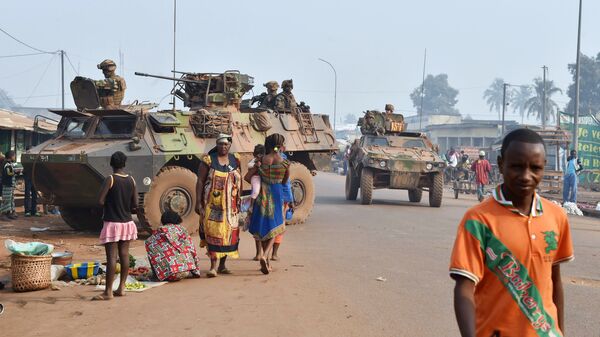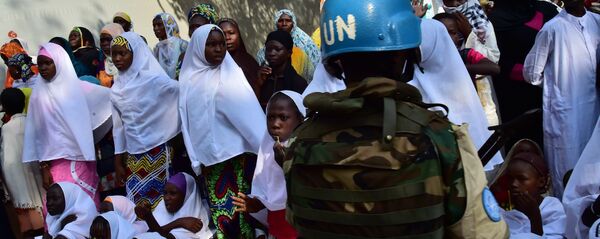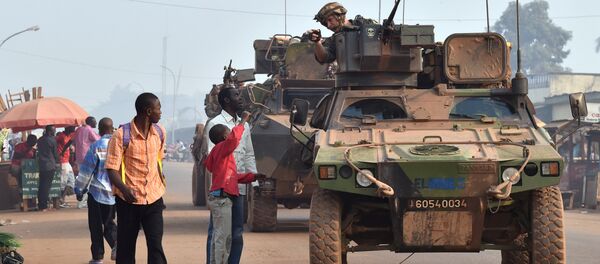Arriving at the French military base in the Central African Republic capital of Bangui on Monday, French Defense Minister Jean-Yves Le Drian announced the end of France's military mission. "The page of the operation has been turned," Le Drian said, speaking at a ceremony at the M'poko military base, presided by local officials and foreign diplomats. "Sangaris has accomplished its mission."
France sent over a thousand troops to its former colony in late 2013 in an effort to quell an uprising by mostly Muslim rebels who had seized the capital of the majority-Christian country and overthrown its president. Operation Sangaris enjoyed the official sanction of the UN, which sent its own peacekeeping force a year later. Le Monde has calculated that the mission, originally intended to last "four to sixth months," cost France's treasury over 500 million euros.
Thousands have been killed in violence that ensued since the 2013 unrest, with about 20% of the country's population forced to flee their homes. Two successive interim governments, along with thousands of UN peacekeepers, have struggled to stop the fighting and to disarm warring militias. Meanwhile, French involvement was subjected to controversy after French troops were repeatedly accused of sexually abusing woman and minors.
On the eve of Le Drian's arrival to the CAR, clashes broke out in Bangui's Muslim quarter, killing 25, according to the UN information office.
Asked to comment on the mission, and why Paris has been unable to quell the unrest after nearly three years, Rolland Marchal, French National Center for Scientific Research analyst and expert on conflicts in sub-Saharan Africa, told Sputnik France that there was little Paris could do on its own to resolve the messy and complicated crisis facing the country.
The expert admitted that Defense Minister Le Drian wasn't being completely honest when he claimed that Operation Sangaris had achieved its goals. In fact, he said, neither France's mission, nor the mandates of the African Union and the UN, have been fulfilled. According to Marchal, this is a common outcome for operations undertaken by the international organizations.
"The only thing that France managed to organize and force through was elections, thanks to which there is a government which is a little more legitimate than its interim predecessor. But this government actually has very little control over the country. So really, the results are very mixed, and it is true that there is room for concern."
At the same time, Marchal stressed that there is no need to regret the departure of French forces. Instead, Paris might now put pressure on the UN mission to improve the quality of its own contingent of troops, "because the ultimate responsibility for peace rests on the shoulders of the UN and the African Union much more than it does on France's shoulders."
"These groups should be seen more as a collection of small groupings, between which very opportunistic alliances are created. One day they may appear united, and the next they will be extremely divided. Violence between the groups is often not part of any broader strategy, but consists of local incidents which end up having implications on the national level…" All this has been complicated by the weakness of the national government, by the UN's impotence, and by a French mission that has been looking for an exit strategy for a long time prior to Monday's announcement, Marchal concluded.





